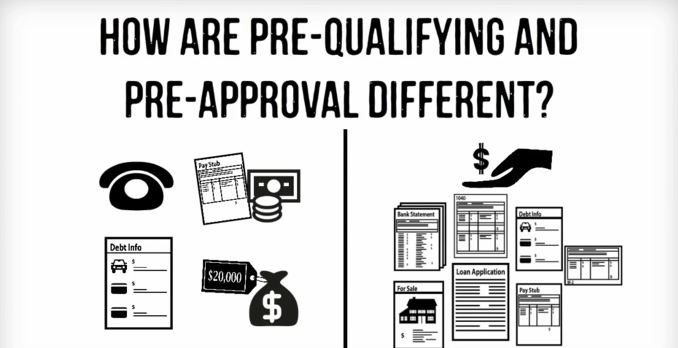Buying, selling, or investing in real estate can feel overwhelming, especially if you’re new to the market. The industry has its own language, filled with terms that might be confusing at first. This guide aims to demystify some of the most common real estate terms, empowering you to make informed decisions and confidently navigate your journey.
Understanding Key Terms in Real Estate Transactions
Real estate transactions involve significant financial decisions, making it crucial to understand the language used. This section breaks down essential terms, providing clear explanations and highlighting their importance in the buying and selling processes.
1. Appraisal: Determining Property Value
An appraisal is a professional assessment of a property’s market value, typically conducted by a licensed appraiser. This assessment considers various factors, including location, size, condition, and recent comparable sales in the area.
Why It Matters:
Appraisals are crucial for several reasons:
- For Buyers: An appraisal helps buyers determine if the asking price is fair and aligns with the property’s actual value.
- For Sellers: A pre-listing appraisal can help sellers set a realistic and competitive asking price.
- For Lenders: Lenders require appraisals to ensure the property’s value justifies the loan amount they are providing. They want to protect their investment.
2. Contingency: Safeguards in Real Estate Contracts
A contingency is a condition that must be met for a real estate contract to become legally binding. These clauses protect buyers and sometimes sellers, allowing them to back out of the deal if specific circumstances aren’t met.
Why It Matters:
Common contingencies include:
- Home Inspection Contingency: Allows buyers to conduct a professional inspection of the property and back out if significant issues are discovered.
- Financing Contingency: This makes the purchase contingent on the buyer securing financing (a mortgage).
- Appraisal Contingency: Allows the buyer to back out if the appraisal comes in lower than the agreed-upon purchase price.
- Sale of Current Home Contingency: (less common) Allows the buyer to sell their existing home before being obligated to purchase the new property.
Understanding contingencies is vital for protecting your interests and avoiding potentially costly mistakes.
3. Escrow: A Neutral Third Party
Escrow is a process where a neutral third party (often a title company or an escrow agent) holds funds and important documents related to the real estate transaction until all agreed-upon conditions are met.
Why It Matters:
Escrow offers protection to both buyers and sellers:
- For Buyers: Escrow ensures that the seller fulfills their obligations before the funds are released.
- For Sellers: Escrow assures that the buyer has deposited the funds and is serious about completing the purchase.
4. Equity: Your Ownership Stake
Equity represents the difference between the current market value of your property and the outstanding balance on your mortgage or any other loans secured against the property.
Why It Matters:
Building equity is a primary goal for many homeowners. It represents your ownership stake and can be a valuable asset for future financial endeavors. For example, you can tap into your home equity through a home equity loan or line of credit.
Example: If your home is worth Php300,000 and you owe Php200,000 on your mortgage, you have Php100,000 in equity.
5. Closing Costs: Expenses at the Finish Line
Closing costs are the fees associated with finalizing a real estate transaction. These costs are paid at the closing, where property ownership is officially transferred.
Why It Matters:
Closing costs can be substantial.
Typically ranging from 2% to 5% of the purchase price, closing costs include expenses like:
- Loan Origination Fees: Charged by the lender for processing your mortgage.
- Appraisal Fees: Cost of the property appraisal.
- Title Insurance: Protects against defects in the property’s title.
- Attorney Fees: For legal representation during the closing process.
- Property Taxes: Prorated property taxes.
Budgeting for closing costs is essential to avoid financial surprises at the closing table.
6. Title Insurance: Protecting Your Ownership
Title insurance is a policy that protects buyers and lenders from financial losses due to defects in the property’s title. These defects could include liens, unpaid taxes, or ownership disputes.
Why It Matters:
Title issues can be complex and difficult to uncover.
Title insurance provides peace of mind, ensuring that your investment is protected even if unforeseen title problems arise.
7. MLS (Multiple Listing Service): A Comprehensive Database
The Multiple Listing Service (MLS) is a vast database of properties for sale, used primarily by real estate professionals. It provides access to a wealth of information, including property details, photos, and recent sales data.
Why It Matters:
The MLS is a powerful tool for both buyers and sellers:
- For Buyers: The MLS allows buyers to see a wide range of available properties and quickly filter based on their criteria.
- For Sellers: Listing a property on the MLS exposes it to a much larger pool of potential buyers.
8. Pre-Approval vs. Pre-Qualification: Understanding the Difference
- Pre-qualification is an initial, informal estimate of how much a lender might be willing to loan you. It’s based on self-reported financial information and doesn’t involve a thorough credit check.
- Pre-approval, on the other hand, is a more formal process where a lender reviews your financial documents (credit reports, income statements, etc.) and provides a written commitment for a specific loan amount, subject to appraisal and other conditions.

Why It Matters:
Pre-approval is significantly stronger than pre-qualification.
Sellers are more likely to take a pre-approved buyer seriously because it demonstrates that they have the financial capacity to purchase the property.
9. Underwriting: Assessing Loan Risk
Underwriting is the process by which a lender evaluates the risk of lending money to a borrower. Underwriters thoroughly review the borrower’s financial history, credit score, employment history, and the details of the property being purchased.
Why It Matters:
The underwriting process is crucial for loan approval.
Understanding the factors that underwriters consider can help you prepare and increase your chances of getting approved for a mortgage.
10. Short Sale vs. Foreclosure: Distressed Property Sales
- A short sale occurs when a homeowner sells their property for less than the amount they owe on their mortgage, with the lender’s permission. This typically happens when the homeowner is facing financial hardship.
- Foreclosure is a legal process where a lender takes possession of a property because the homeowner has failed to make their mortgage payments.

Why It Matters:
Both short sales and foreclosures can offer opportunities for buyers looking for discounted properties. However, they also come with potential complexities and risks. It’s important to understand the differences and seek professional guidance before pursuing these types of transactions.
Empowering You Through Knowledge
By familiarizing yourself with these common real estate terms, you’ll be better equipped to navigate the complexities of the market. Remember, knowledge is power in real estate. Whether you’re buying, selling, or investing, understanding the language of the industry will empower you to make informed decisions and confidently achieve your real estate goals. Don’t hesitate to consult with real estate professionals for further guidance and support.
Ready to take the next step in your real estate journey? At Housinginteractive, we’re committed to providing you with the expertise and resources you need to achieve your goals. Contact our team of experts today for personalized advice and support. Let’s make it happen!
This article on understanding common and confusing terms in real estate is presented in partnership with Ms. Sheila Viesca, Ph.D., of TalkShop. With her expert guidance, we aim to demystify the jargon often encountered in real estate transactions, empowering readers to make informed decisions throughout their property journey.

























